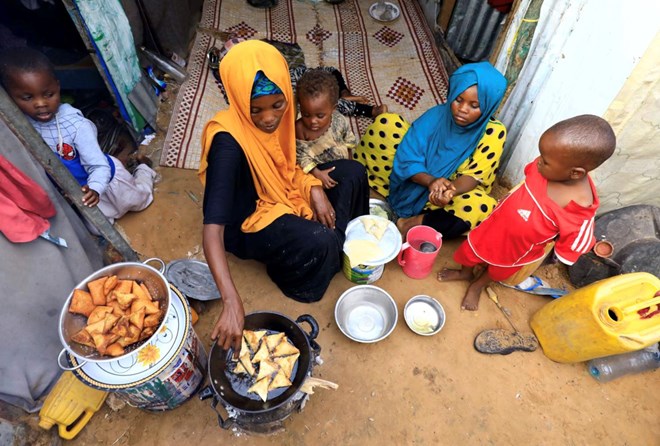
Saturday May 9, 2020

An internally displaced Somali woman and her children prepare their Iftar meal during the month of Ramadan at the Shabelle makeshift camp in Hodan district of Mogadishu, Somalia April 24, 2020. REUTERS/Feisal Omar
MOGADISHU (Reuters) - In makeshift metal homes in a camp in Mogadishu, women wrapped in brightly patterned scarves are making savoury pastries and mixing flour for flatbreads.
They are preparing iftar, the evening meal when Muslims break their fast during Ramadan, which this year falls in the middle of a global pandemic.
Social distancing and frequent handwashing to prevent the spread of the new coronavirus are difficult requests for people living at such close quarters and with poor sanitation.During Ramadan, when food prices rise, they become nigh on impossible. With cash growing even scarcer as the coronavirus outbreak cripples the economy, they are pooling what they have with neighbours in order to cobble together a communal meal.
“As coronavirus broke out in the city and people are not going to work ... we started collecting half dollar, one dollar or two dollars” from families for food, said resident Mohamed Warsame Hirsi.
Somalia has 928 confirmed coronavirus cases as of Thursday, according to a Reuters tally based on government statements and WHO data. And with 44 deaths, it has the highest number of fatalities in the region.
“We do not have soap to clean our hands as the virus spreads,” said Khadija Diriye, who also lives at the camp.
People are praying for some respite, like Hassan Ibrahim, another resident.
“We wish Allah to give us good recovery from disease.”